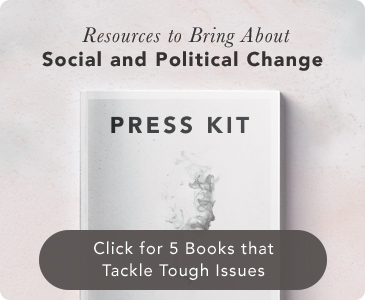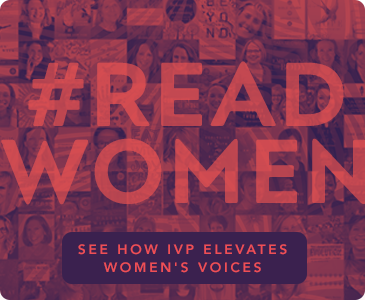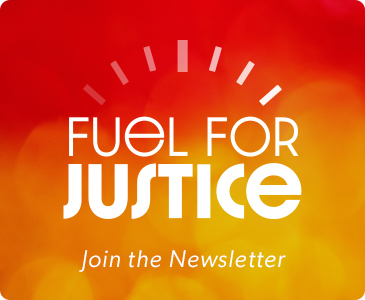A Conversation on Gun Violence & Advocacy with Taylor Schumann
Taylor Schumann survived a school shooting, yet she was left with permanent wounds, both visible and invisible. In her book When Thoughts and Prayers Aren't Enough, she weaves her own incredible story into a larger conversation about gun violence and reform in America. As mass shootings continue to occur at an alarming rate across the country, this issue is tragically relevant, especially as Christians grapple with strongly help opinions on second amendment rights. In this interview, Taylor frames gun violence as a spiritual issue rather than a political one while sharing her ideas on advocating for a safer future.
What inspired you to write this book?
Taylor Schumann: After I began to speak out about gun reform and share my own story, I heard from a lot of people about how they had never really thought about it before, but hearing my story helped them understand. I realized that for an issue like gun violence, where most people might not know someone who has been personally affected, it's easy to ignore it unless you have a face to put with it—someone to think about when you hear about a shooting in the news. I began seeing the people around me and those who read my story begin to experience a shift in their thinking. If making the issue of gun violence more accessible and personal will help create meaningful change in the world, then that is an easy choice to make.
If this book and the powerful messages you share within it could do just one thing, as it relates to your advocacy work for gun control, what would that one thing be?
Schumann: My desire for anyone reading this book would be to help them be able to see gun violence and reform first from a humanized and spiritual perspective rather than a political one. Our faith in Jesus and our knowledge of him and his teaching should inform how we see our role in politics and not the other way around. As long as we see gun reform solely as a political issue, we will fail to really advocate for our neighbors.
As long as we see gun reform solely as a political issue, we will fail to really advocate for our neighbors.
As an advocate, what do you feel the gun violence argument is really about, at its core?
Schumann: The argument about gun reform is, at its core, about individual rights versus the collective good. We live in a country—the United States—where individual rights and personal freedoms are elevated above all else. We have a really hard time understanding that to ensure the good of all of us, we may have to make personal sacrifices. And yet, if we are followers of Jesus, we know that is a central tenet of what we believe—laying down our lives for our neighbors and counting others as more important than ourselves. We will never be able to enact meaningful change if we don't begin to think of the safety of others as more important than our personal rights. It can't just be about laws, it has to be about a cultural shift in our thinking.
In your book, you talk about the ripple effect of gun violence. Why is it so important to go beyond the reported statistics and understand the bigger effect?
Schumann: It is easy to read a statistic like "40,000 people die as a result of gun violence each year" and leave it at forty thousand people being affected. When in reality that is forty thousand families affected, people who have children and parents and siblings—now they have all experienced a trauma as well. That is forty thousand people with friends who are now at a greater risk of poverty.
Maybe they were their family's sole wage earner and now their family is at a greater risk of experiencing poverty or homelessness. Maybe they were a single parent and now their children must enter the foster care system. Maybe they were a business owner and now a community loses an important part of their economy. Now, there are forty thousand of those ripples extended far into our communities each year, and we can never possibly know just how much gun violence has affected us. It's never just a statistic, and it is never just a number.
We will never be able to enact meaningful change if we don't begin to think of the safety of others as more important than our personal rights.
Which part of the book was harder for you to write: retelling your personal experience with gun violence, or sharing all of the wisdom and insight that has come from the experience and your hope for change for our nation?
Schumann: Retelling my personal experience was the hardest part of writing this book. I can recite statistics, summarize data, and make a factual argument about gun violence without having to necessarily be vulnerable with my story. But when I share the personal details of what I experienced and how gun violence has affected my life, there is always the possibility that it won't be enough, and that people will be able to discount my personal pain and suffering without a second thought. That is much harder to cope with than not being able to change someone's mind with statistics.
You outline that a common statement people made to you in the hospital after you survived the shooting was "God must have big plans for you." How have you seen God's plans for your life unfold in the years that followed? How have you been leaning into or pushing back on that idea?
Schumann: I think my understanding of the word big in the statement "God must have big plans for you" has changed. Big doesn't always have to mean writing books and speaking and becoming a public figure—though I am extremely grateful I get to do those things. I spent years after the shooting experiencing big as taking care of myself, healing, supporting, and loving the people around me, and learning to be faithful with the unseen and seemingly small parts of our everyday life.
I am hopeful that my work can help bring change on a large scale, but I now understand that most of the world-changing work happens in our own homes and our local communities. When we look at this that way, we remember that God has big plans for all of us.









